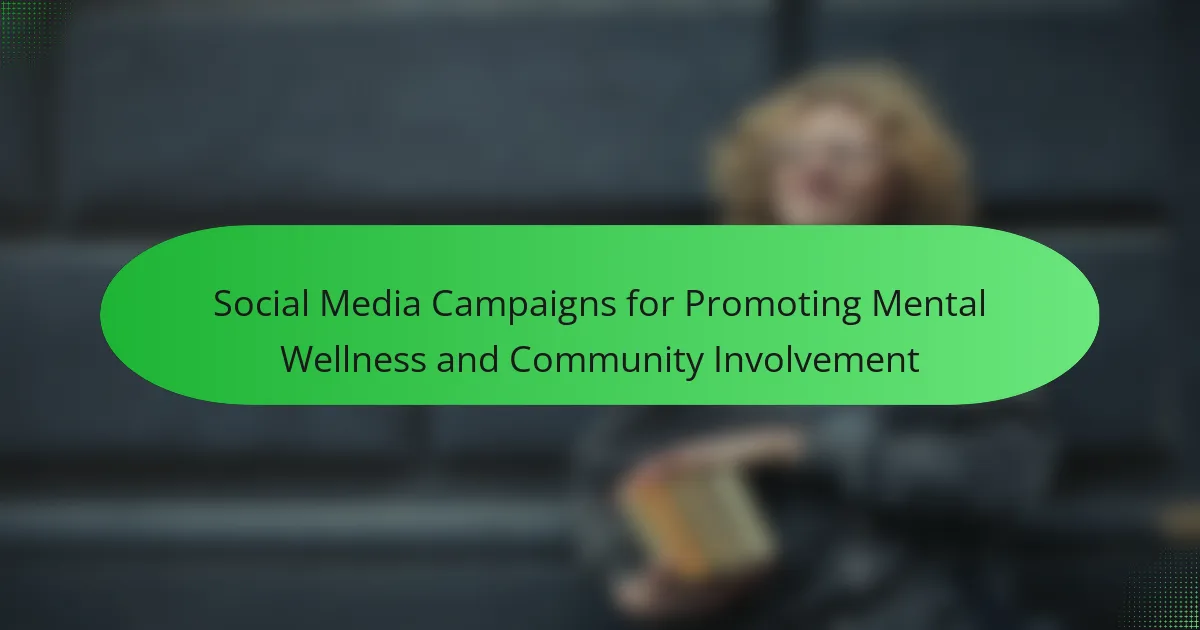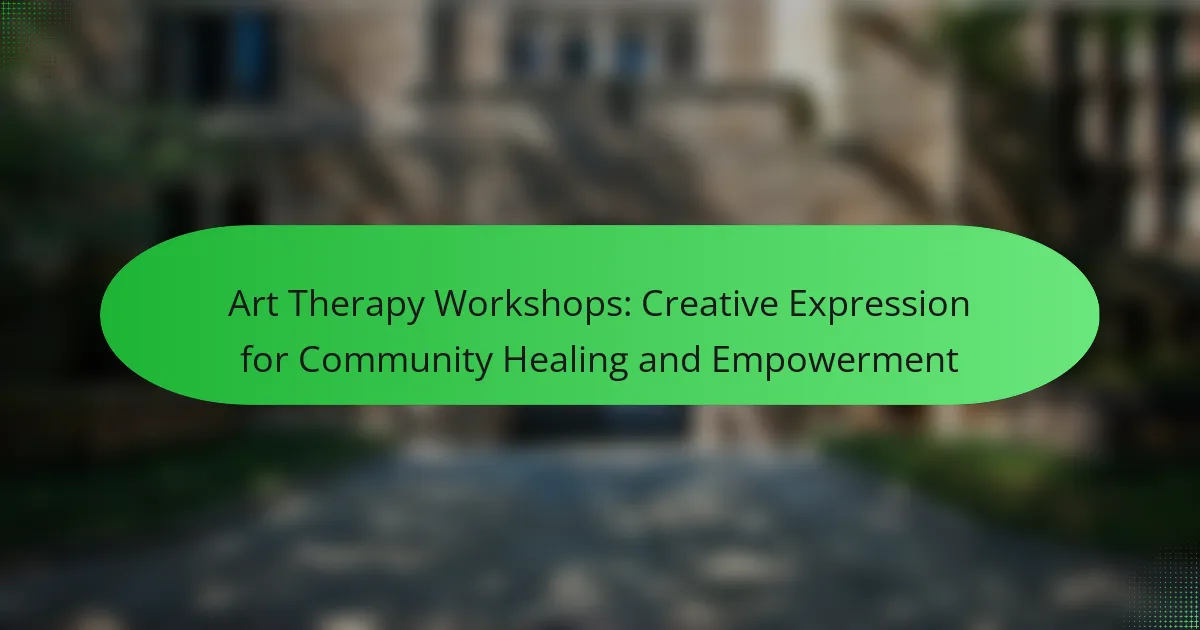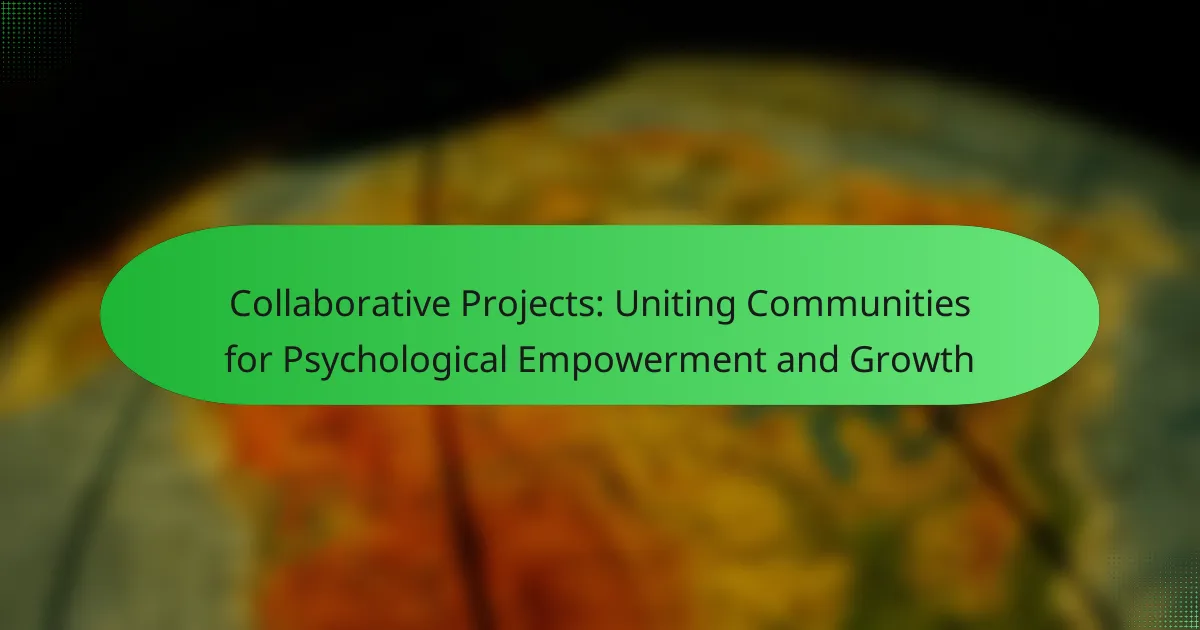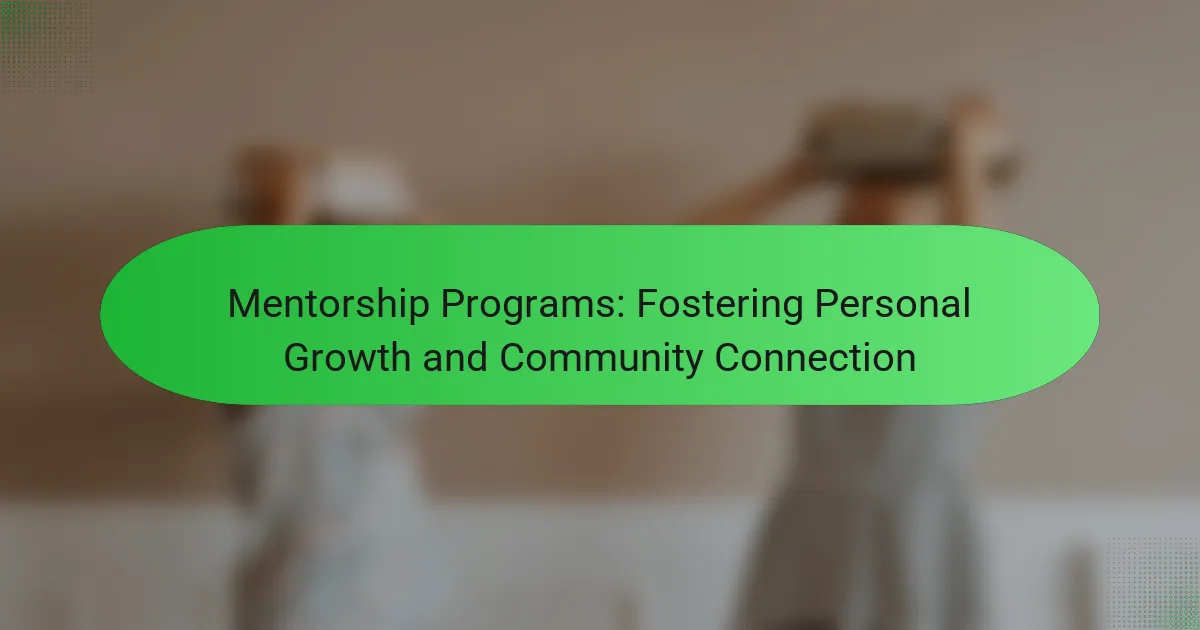Volunteer engagement strategies significantly enhance community mental health by fostering social connections and support networks. This article explores effective models like peer support programs and skill-based volunteering, addresses challenges in recruitment and retention, and highlights the role of technology in improving engagement. Additionally, it examines emerging trends that will shape volunteer initiatives in 2025, promoting inclusivity and better mental health outcomes.
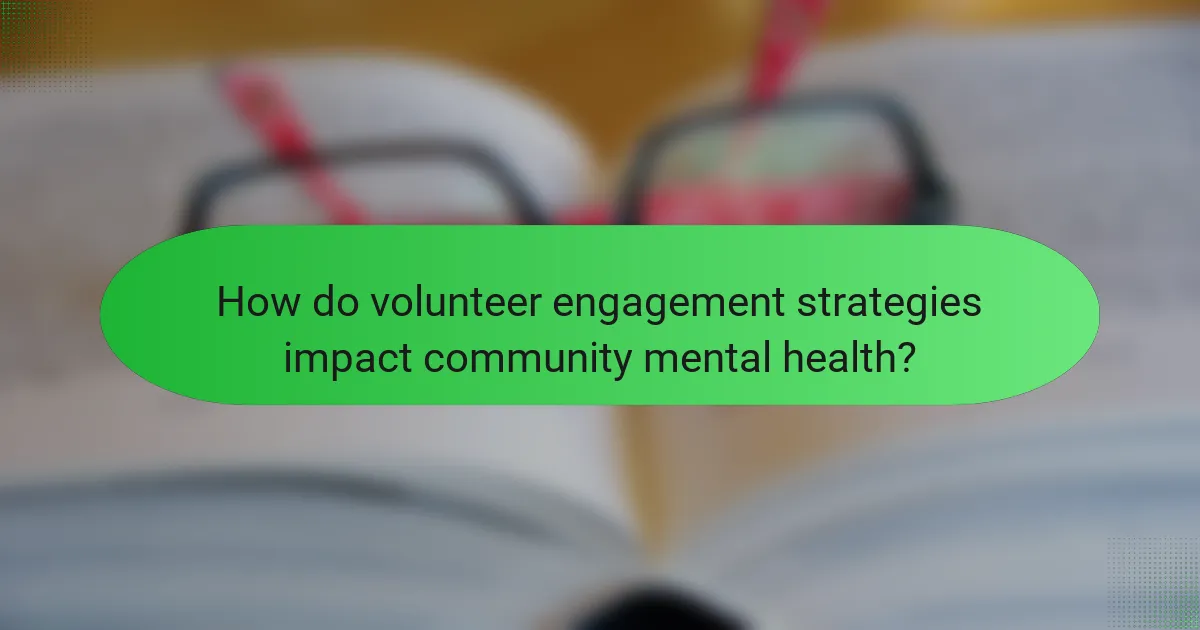
How do volunteer engagement strategies impact community mental health?
Volunteer engagement strategies significantly enhance community mental health by fostering social connections and support networks. Engaging volunteers creates opportunities for individuals to connect and share experiences, reducing feelings of isolation.
Studies show that communities with active volunteer programs report lower levels of anxiety and depression. For instance, a survey indicated that 70% of participants felt more connected to their community through volunteering. This sense of belonging is crucial for mental well-being.
Moreover, volunteering provides a sense of purpose, which can be particularly beneficial for individuals facing mental health challenges. It empowers them to contribute positively, leading to improved self-esteem and resilience.
Lastly, volunteer engagement initiatives can facilitate access to mental health resources, promoting awareness and reducing stigma. By creating supportive environments, these strategies play a vital role in enhancing overall community mental health.
What are the key benefits of volunteer engagement for mental health initiatives?
Volunteer engagement significantly enhances mental health initiatives by fostering community support, increasing awareness, and promoting personal well-being. Engaging volunteers creates a network of compassionate individuals who contribute to mental health resources. This collaboration can lead to improved access to services and reduced stigma around mental health issues. Additionally, studies show that volunteering can enhance the mental health of volunteers themselves, reducing feelings of isolation and increasing life satisfaction. Overall, volunteer engagement is a vital component in strengthening mental health initiatives and building resilient communities.
Why is community involvement crucial for mental health improvement?
Community involvement is crucial for mental health improvement as it fosters connections and support. Engaging in volunteer activities enhances social networks, reduces feelings of isolation, and promotes a sense of belonging. Studies show that communities with higher volunteer rates report improved mental well-being among residents. Additionally, participation in community service can boost self-esteem and provide a sense of purpose, which are vital for mental health.
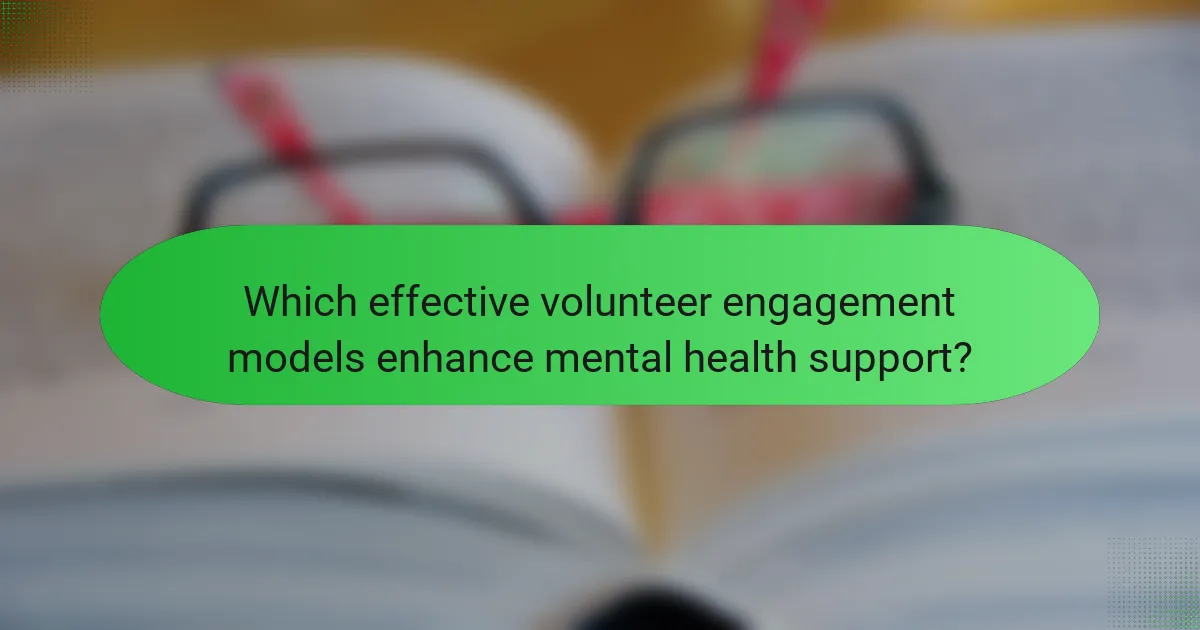
Which effective volunteer engagement models enhance mental health support?
Effective volunteer engagement models enhance mental health support by fostering community connections and providing structured involvement. These models include peer support programs, skill-based volunteering, and mental health first aid training.
Peer support programs leverage shared experiences to promote mental well-being, creating a sense of belonging. Skill-based volunteering allows individuals to use their expertise to support mental health initiatives, enhancing service delivery. Mental health first aid training equips volunteers with essential skills to assist those in crisis, increasing community resilience.
These models not only improve mental health outcomes but also strengthen community bonds, making them vital for effective mental health support.
How can organizations implement peer support programs?
Organizations can implement peer support programs by fostering a culture of openness and training volunteers effectively. First, identify community needs through surveys or focus groups to tailor the program. Next, recruit and train volunteers, emphasizing empathy and active listening skills. Establish clear guidelines and provide ongoing support to volunteers. Finally, promote the program through community outreach to raise awareness and encourage participation. Regularly evaluate the program’s impact to ensure it meets community mental health needs.
What role do community events play in volunteer engagement?
Community events significantly enhance volunteer engagement by fostering connection and collaboration. These gatherings create opportunities for volunteers to meet, share experiences, and build relationships, which can lead to increased commitment and motivation. Engaging in community events also allows volunteers to witness the impact of their contributions firsthand, reinforcing their sense of purpose. Furthermore, these events often attract new volunteers, expanding the network of support for mental health initiatives. Ultimately, community events serve as a catalyst for sustained volunteer involvement and community well-being.
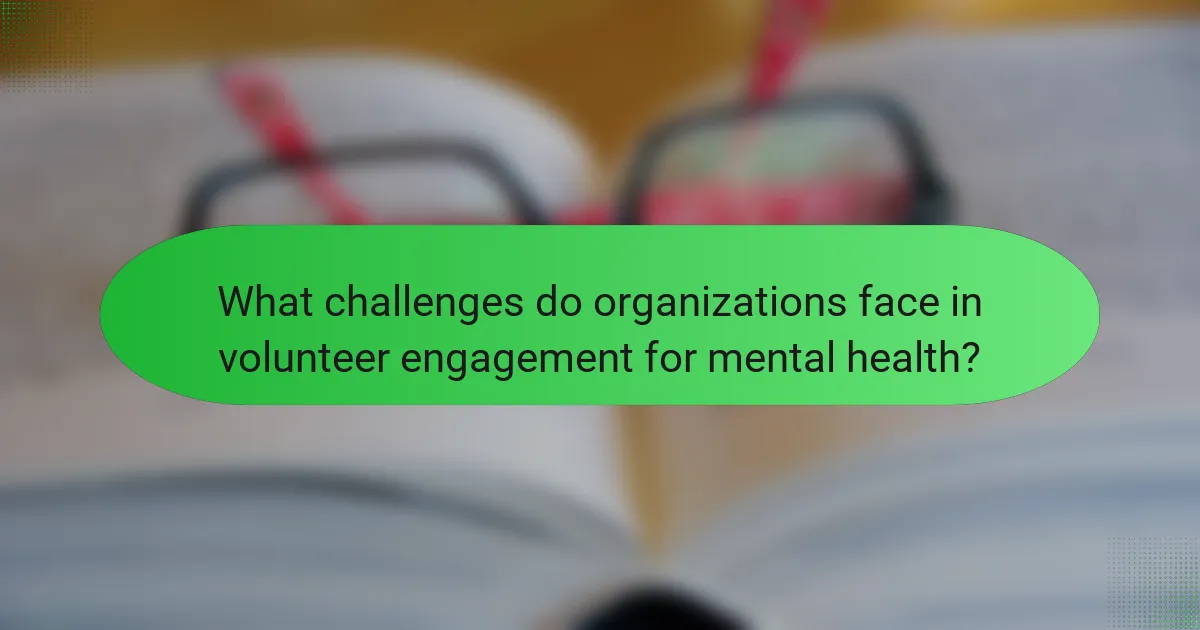
What challenges do organizations face in volunteer engagement for mental health?
Organizations face several challenges in volunteer engagement for mental health, including recruitment, retention, training, and ensuring meaningful involvement. Recruitment often struggles due to a lack of awareness about mental health needs and available opportunities. Retention is hindered by volunteer burnout, especially in emotionally demanding environments. Training volunteers effectively is crucial, yet many organizations lack the resources to provide comprehensive programs. Additionally, ensuring that volunteers feel their contributions are impactful can be difficult, leading to disengagement. Addressing these challenges requires strategic planning and robust support systems.
How can barriers to participation be addressed?
Barriers to participation can be addressed through targeted outreach, flexible scheduling, and inclusive practices. Engaging community members requires understanding their unique challenges and providing tailored support. For instance, offering virtual volunteer opportunities increases accessibility for those with mobility issues. Additionally, creating a welcoming environment fosters trust and encourages participation. Regular feedback from volunteers can identify ongoing barriers and inform future strategies.
What are the common misconceptions about volunteering and mental health?
Many believe volunteering only benefits others, but it significantly enhances the mental health of volunteers. Common misconceptions include the idea that volunteering requires extensive time commitment, that it is only for certain skill sets, and that it does not provide immediate emotional rewards. In reality, even small acts of kindness can yield substantial mental health benefits, such as reduced stress and increased happiness. Additionally, volunteering can be tailored to fit individual schedules and skills, making it accessible to a broader audience.
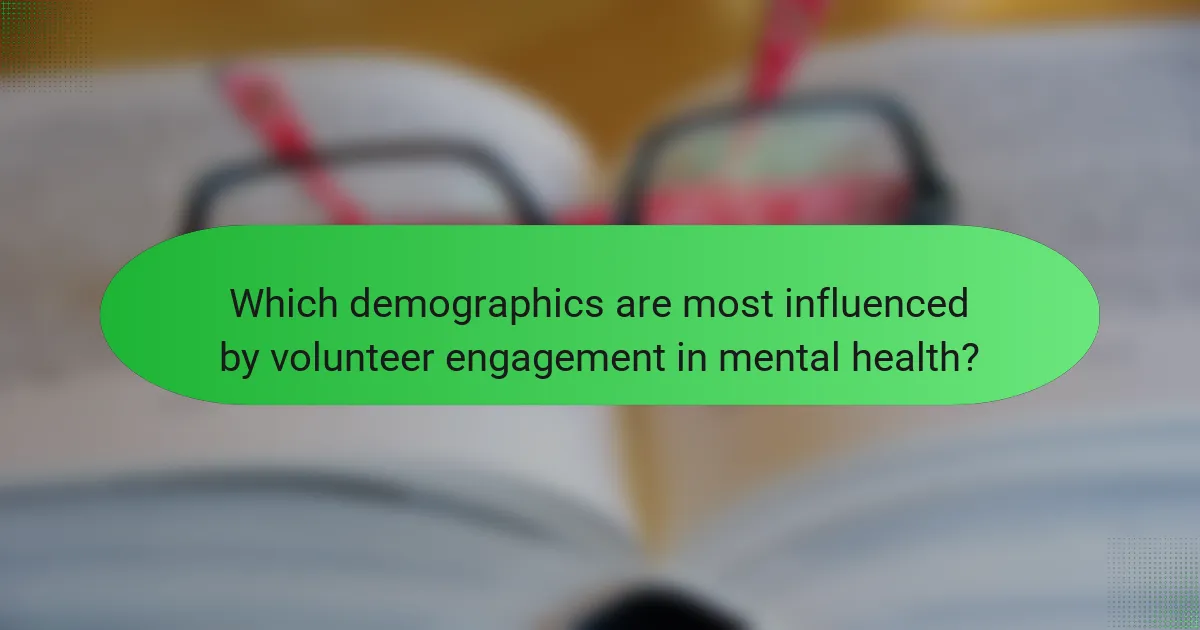
Which demographics are most influenced by volunteer engagement in mental health?
Younger adults and individuals with prior mental health challenges are most influenced by volunteer engagement in mental health. Research indicates that ages 18-34 show heightened responsiveness to community initiatives. Additionally, those with personal experiences in mental health often report increased motivation to participate in volunteer activities. This engagement can lead to improved community mental health outcomes by fostering connections and reducing stigma.
How do age and cultural background affect volunteer participation?
Age and cultural background significantly influence volunteer participation. Younger individuals often engage in different activities compared to older generations, reflecting varying motivations and time availability. Cultural background shapes attitudes towards volunteering, impacting community involvement and the types of services offered. For instance, cultures that emphasize collectivism may encourage higher participation in community service. Understanding these dynamics aids in developing tailored volunteer engagement strategies that enhance community mental health initiatives.
What unique needs do underserved populations have regarding mental health support?
Underserved populations require tailored mental health support that addresses cultural, economic, and accessibility barriers. These groups often face stigma, lack of resources, and limited access to care.
Unique needs include culturally competent services, which respect diverse backgrounds and beliefs. Additionally, these populations may benefit from community-based programs that provide support in familiar environments.
Access to affordable care is critical, as financial constraints often limit options. Outreach initiatives can help bridge gaps by connecting individuals with local resources and services.
Finally, integrating peer support into mental health strategies can empower underserved populations, fostering a sense of community and shared experience.
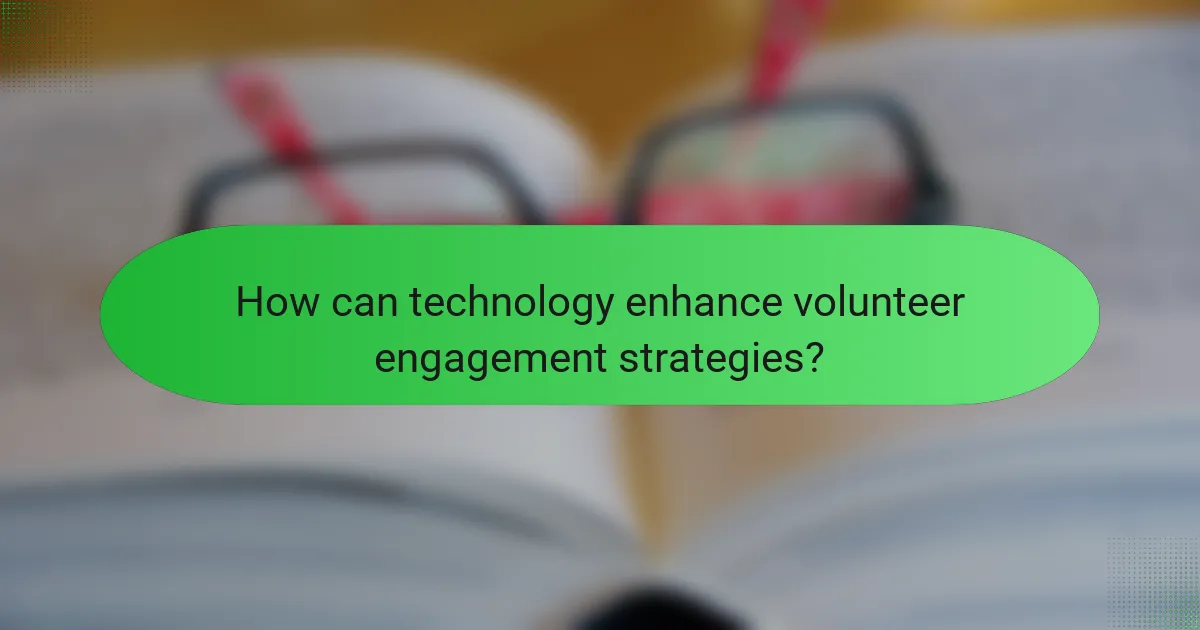
How can technology enhance volunteer engagement strategies?
Technology can significantly enhance volunteer engagement strategies by improving communication, coordination, and recognition. Digital platforms facilitate real-time updates and feedback, fostering a sense of community among volunteers.
Mobile apps streamline volunteer scheduling and task management, ensuring efficient use of time and resources. Data analytics can identify volunteer preferences and optimize recruitment efforts, tailoring experiences to individual motivations.
Virtual training sessions and webinars enhance skill development, making participation more accessible. Social media serves as a powerful tool for recognition, showcasing volunteer contributions and building morale within the community.
Which digital platforms are most effective for recruiting volunteers?
Social media platforms, volunteer matching websites, and community forums are most effective for recruiting volunteers. Platforms like Facebook and LinkedIn enable targeted outreach and engagement. VolunteerMatch and Idealist connect organizations with individuals eager to contribute. Local community forums foster connections and promote opportunities. Each platform offers unique attributes that enhance volunteer engagement and community mental health initiatives.
How can social media campaigns raise awareness about mental health volunteering?
Social media campaigns can effectively raise awareness about mental health volunteering by engaging communities through targeted messaging. These campaigns can highlight the benefits of volunteering, share personal stories, and provide information on how to get involved.
Utilizing platforms like Facebook and Instagram allows organizations to reach diverse audiences. Engaging visuals and impactful narratives can capture attention and foster emotional connections. For example, testimonials from volunteers can demonstrate the positive impact on mental health for both volunteers and recipients.
Incorporating statistics about mental health issues can also enhance the message. Research shows that involvement in volunteer activities can reduce feelings of isolation and improve overall well-being.
Finally, calls to action should be clear and accessible, guiding interested individuals to sign up or learn more about opportunities. This approach can create a supportive community around mental health initiatives.
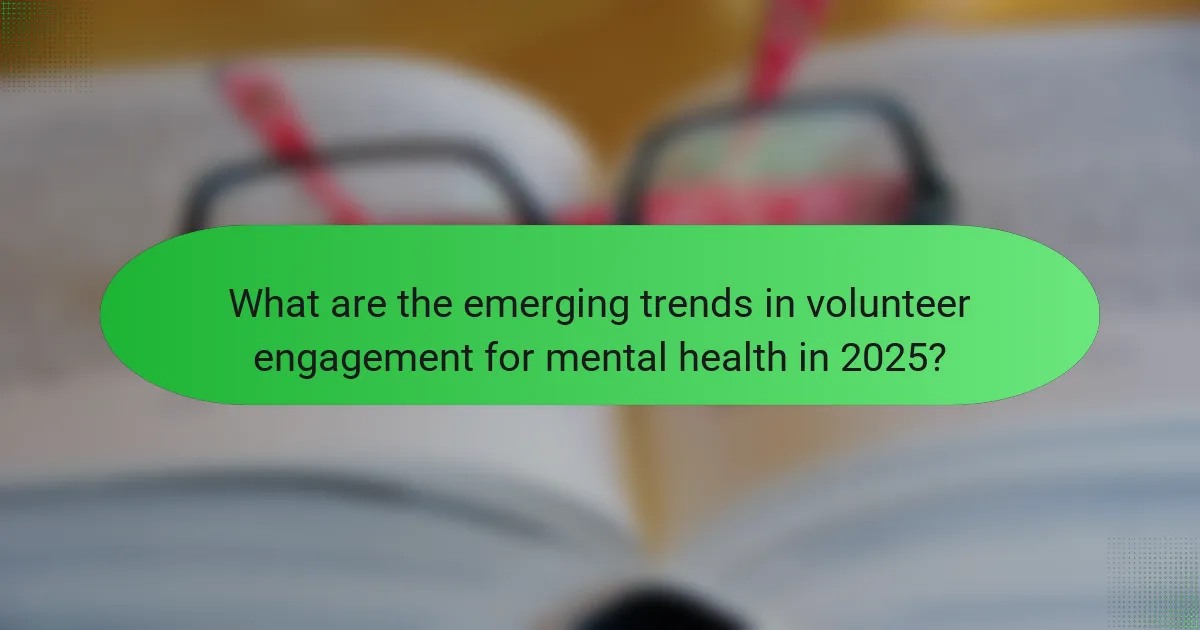
What are the emerging trends in volunteer engagement for mental health in 2025?
Emerging trends in volunteer engagement for mental health in 2025 include digital platforms, community partnerships, and targeted training programs. These strategies enhance accessibility and effectiveness in addressing mental health needs.
Digital platforms will facilitate remote volunteering, expanding participation. Community partnerships will leverage local resources, creating integrated support systems. Targeted training programs will equip volunteers with specific skills, improving service delivery.
As a result, these trends will foster a more inclusive volunteer environment, ultimately enhancing community mental health outcomes.
How is the role of virtual volunteering evolving?
The role of virtual volunteering is rapidly evolving to enhance community mental health. Digital platforms facilitate broader participation, allowing volunteers to contribute remotely. This flexibility increases engagement, particularly among those unable to volunteer in person. Virtual volunteering also fosters diverse collaborations, connecting mental health organizations with a wider range of skills and resources. As a result, community mental health initiatives benefit from innovative solutions and increased support.
What innovative practices are being adopted worldwide?
Innovative practices worldwide focus on collaborative volunteer engagement to improve community mental health. Initiatives include peer support programs, mental health first aid training, and community-based wellness activities. These strategies enhance social connections, reduce stigma, and promote mental well-being. For example, cities are implementing volunteer-led workshops that empower individuals to share experiences and resources. As a result, communities experience increased resilience and improved mental health outcomes.
What lessons can be learned from successful volunteer programs?
Successful volunteer programs enhance community mental health by fostering engagement, providing training, and creating supportive environments. Key lessons include prioritizing clear communication, recognizing volunteer contributions, and ensuring alignment with community needs.
Effective volunteer programs utilize structured onboarding processes to equip volunteers with necessary skills and knowledge. They also promote collaboration among volunteers to strengthen community ties and support networks. Regular feedback mechanisms help identify areas for improvement and enhance volunteer satisfaction.
Community-focused initiatives lead to increased participation and greater impact on mental health outcomes. Programs that adapt to the evolving needs of the community demonstrate resilience and effectiveness. Overall, successful volunteer programs are characterized by their ability to build trust and empower individuals.
What best practices should organizations follow to optimize volunteer engagement?
Organizations should prioritize clear communication, meaningful roles, and recognition to optimize volunteer engagement. Establishing a welcoming environment fosters commitment and satisfaction among volunteers.
1. Define clear objectives to align volunteer efforts with organizational goals.
2. Offer training and resources to enhance volunteer skills and confidence.
3. Create diverse roles that match volunteers’ interests and strengths.
4. Implement regular feedback mechanisms to improve volunteer experiences.
5. Recognize and celebrate volunteer contributions to boost morale and retention.
